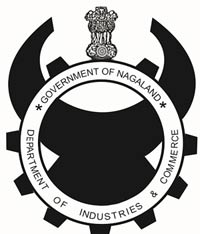About PM FME Scheme
Overview
The unorganized food processing sector in the country comprises nearly 25 lakh food processing enterprises which are unregistered and informal. With only 7% of investment in plant & machinery and 3% of outstanding credit, the unorganized enterprises contribute to 74% of employment (a third of which are women), 12% of output and 27% of the value addition in the food processing sector. Nearly 66% of these units are located in rural areas and about 80% of them are family-based enterprises1. Most of these units falls under category of micro manufacturing units in terms of their investment in plant & machinery and turnover.
The unorganized food processing industry in India faces challenges that limit its development and weakens performance. These challenges include: (a) lack of productivity and innovation due to limited skills and access to modern technology and machinery for production and packaging; (b) deficient quality and food safety control systems, including lack of basic awareness on good hygienic and manufacturing practices;(c) lack of branding & marketing skills and inability to integrate with the supply chains, etc.;(d) capital deficiency and low bank credit.
Unorganized micro food processing units, need intensive hand holding support for skill training, entrepreneurship, technology, credit and marketing, across the value chain, necessitating active participation of the state government for better outreach. In the last decade, Central and State Governments have made intensive efforts to organize farmers in Food Processing Organisations (FPOs) and women’s Self Help Groups (SHGs). SHGs have achieved considerable progress in thrift and their repayment record with 97% NPA level is among the best. Governments have made efforts to enable SHGs to undertake various manufacturing and service sector activities including food processing. However, there are few Government schemes to support FPOs and SHGs to make investment and upscale their operations.
This scheme is a centrally sponsored scheme that is designed to address the challenges faced by the micro enterprises and to tap the potential of groups and cooperatives in supporting the upgradation and formalization of these enterprises.
Aims
The scheme aims to:
- Enhance the competitiveness of existing individual micro-enterprises in the unorganized segment of the food processing industry and promote formalization of the sector; and
- Support Farmer Producer Organizations (FPOs), Self Help Groups (SHGs) and Producers Cooperatives along their entire value chain.
Objectives
The objectives of scheme are to build capability of microenterprises to enable:
- Increased access to credit by existing micro food processing entrepreneurs, FPOs, Self Help Groups and Co-operatives;
- Integration with organized supply chain by strengthening branding & marketing;
- Support for transition of existing 2,00,000 enterprises into formal framework;
- Increased access to common services like common processing facility, laboratories, storage, packaging, marketing and incubation services;
- Strengthening of institutions, research and training in the food processing sector; and
- Increased access for the enterprises, to professional and technical support.
Programme Components
The programme has four broad components addressing the needs of the sector:
- Support to individual and groups of micro enterprises;
- Branding and Marketing support;
- Support for strengthening of institutions;
- Setting up robust project management framework.
A)Institutional Architecture in the State
For the implementation of the Scheme in the State of Nagaland, the following institutional structures have been constituted:-
- Slate Level Approval Committee (SLAC) under the Chairmanship of the Chief Secretary of Nagaland.
- State Nodal Department (SND) – Industries & Commerce Department, Government of Nagaland.
- State Nodal Agency (SNA) – Directorate of Industries & Commerce, Nagaland.
- State Programme Management Unit (SPMU) to assist the SNA in the implementation of the PM FME Scheme in the State.
- State Level Technical Institution (SLTI) – ICAR Research Complex for NEH Region, Jharnapani has been nominated to be the SLTI.
- District Level Committee (DLC) under the Chairmanship of the respective Deputy Commissioner (DC).
- District Resource Persons (DRPs).
One District One Product (ODOP)
The Scheme adopts One District One Product (ODOP) approach to reap the benefit of scale in terms of procurement of inputs, availing common services and marketing of products. ODOP for the scheme will provide the framework for value chain development and alignment of support infrastructure. There may be more than one cluster of ODOP product in one district. There may be cluster of ODOP product consisting of more than one adjacent district in a State.
ODOP List for the State of Nagaland
The food processing sector in the State is still at a nascent stage and the segment requires considerable thrust for its growth and development in order to harness its available potential. At present, there are several micro food processing enterprises emerging across the State however, these are majorly home-based and un-organized. Moreover, these un-organized units are run informally by farmers, individuals and groups by way of adding minimal value to their local produces using traditional methods. Also, their presence is barely felt and goes un-noticed in the local market and as such, the actual number of their activity is not recorded.
Considering these factors and others as well, the State Government deliberated and stressed upon that the farmers’ produces ought to be chiefly focused and given adequate emphasis towards processing and value addition in order to ensure benefits to farmers, while at the same time control wastage, process surplus produces, upscale farm produces and strengthen the value chain system. Accordingly most dominant and potential products in the Districts were identified for ODOP.
List of ODOP identified for 11 Districts in the State of Nagaland
| Sl. No. | District | ODOP |
| 1 | Kohima | Pickle products |
| 2 | Dimapur | Pineapple products |
| 3 | Mokokchung | Coffee products |
| 4 | Wokha | Fish products |
| 5 | Peren | Naga King chilly products |
| 6 | Phek | Kiwi products |
| 7 | Kiphire (Aspirational District) | Kholar (Rajma) products |
| 8 | Tuensang | Kholar (Rajma) products |
| 9 | Mon | Large cardamom products |
| 10 | Longleng | Ginger products |
| 11 | Zunheboto | Soya bean products |







